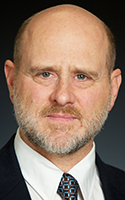By Douglas Tucker, M.D.

Proper medication management is essential to ensure the correct treatment of medical conditions and overall health. But this can be difficult for many older adults.
Medication-related problems are one of the top five causes of death in seniors, according to the American Society of Consultant Pharmacists, and a major cause of confusion, depression, falls, disability and loss of independence.
Seniors are especially at risk for medication-related problems due to physiological changes of aging, higher incidence of multiple diseases and conditions, and greater consumption of prescription and over-the-counter medications.
The Aging Life Care Association says that many older adults also face declining eyesight, grip strength, mobility and memory issues. And as our bodies change, the way medications work in the body also changes. Medicines may stay in the body longer and may cause more severe side effects if doses are not properly adjusted and monitored — leading to a higher risk of drug interactions in older adults.
The National Center for Biotechnology Information has found that older adults who live alone and people with multiple prescribing providers were more prone to medication errors. But patients who were given a medication card with a list of current medications were more compliant with their medication regimen.
Patients who participate in pharmacy delivery programs and refill reminders have fewer adverse drug events and higher compliance than those who do not. And nursing assistance for medication management can also help prevent unnecessary hospitalizations and emergency department visits, as well as improve quality of life.
Here are 10 tips to better manage medication:
1. Schedule frequent doctor appointments;
2. Use one pharmacy for all medications;
3. Arrange for medications to be picked up from the drug store or delivered to you;
4. Store medicines in a particular—and safe—location;
5. Set reminders, use a timed pill box, or ask for reminders from another person;
6. Identify a “patient navigator” within your healthcare team to help navigate the healthcare system and help you take prescription medicines as prescribed;
7. Maintain a medication list with written directions and a check list;
8. Know which medications to take together;
9. Know if you need to take foods or liquids with certain medications;
10. Dispose of old drugs.
